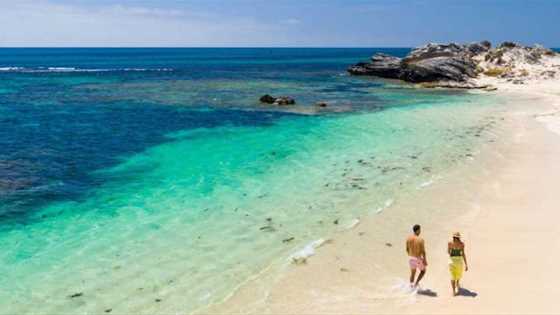If you could save three or more lives by taking one life, would you do it? Philosophy expert Dr Nin Kirkham walks us through a real-life dilemma.
There is a well-known thought experiment in ethics called 'the trolley problem'. You are standing in a railway control room overlooking
a set of train tracks, and you can see a runaway carriage (trolley) heading towards five workmen. In front of you is a lever, which will divert the carriage onto an alternative track where there is only one person working. The question is: should you switch the lever to save the five men at the expense of one life?
Given the choice between saving five lives at the expense of one, and doing nothing, most people choose to act. According to the so-called 'utilitarian' approach to ethics, which claims broadly that the right thing to do is whatever it is that produces 'the greatest good for the greatest number', sacrificing one life to save five is generally considered to be the right thing to do.
Now that might seem okay in principle, but what about with real lives at stake? What if it were possible to save the lives of three healthy people, by ending the life of someone terminally ill? Would that be the right thing to do? Take this story, for instance:
In 1884, the Mignonette, a racing yacht en route from England to Sydney, was swamped by a wave and sank about 2500km off the Cape of Good Hope. Three men (Dudley, Stephens and Brooks) and a 16-year-old cabin boy (Parker) were on board when the yacht sank, and escaped in a dinghy with some essential navigational equipment, two tins of turnips and no water.
After about eight days, unable to catch rainwater and with only a sea turtle to eat, they began to drink their own urine. Their physical condition quickly deteriorated, and talk soon turned to drawing lots, whereby a sacrificial victim could be nominated to be killed as food for the other three. Around the fifteenth day, Parker became sick from drinking seawater, and the discussion of a possible sacrifice intensified. Dudley and Stephens argued strongly for the proposal, Brooks refused to draw lots, and Parker was unable to contribute, having lapsed into a coma.
After three weeks, Dudley and Stephens sacrificed the cabin boy, whom they believed was very near death. All three men lived off the boy's body, and finally caught some rainwater, before a passing ship rescued them, four days later. Dudley later said: "I can assure you I shall never forget the sight of my two unfortunate companions over that ghastly meal. We all was like mad wolfs who should get the most, and for men – fathers of children – to commit such a deed, we could not have our right reason."
Dudley, Stephens and Brooks were all open and frank in their admissions regarding the events on the Mignonette's dinghy. They believed that they were protected by the Custom of the Sea – special rules that applied to open-sea mariners. In a culture heavily dependent on seafaring, the custom was to do what was necessary to maximise overall survival; to follow a utilitarian approach to ethics. A traditional criteria used in such cases affirmed that a man might be sacrificed if he was close to death anyway, unfit to contribute to the group's survival, or without dependents. All these things being equal, a random method of deciding (drawing straws) was to be used.
Rather unexpectedly, the English authorities made an example of the men. The Crown v. Dudley and Stephens became a well-known legal case because it turned on the meaning and interpretation of the word 'necessity'. The court defined 'necessity' as 'a deliberate threat' or 'a threat due to another person's mere existence'. The crown argued that this was not a justifiable case of necessity and the two were found guilty of murder and sentenced to death. They only served a six-month sentence, however.
You might think that, due to extreme hunger, thirst and exposure, the duo were not fully responsible for what they did. Or that, due to the desperate conditions at sea, they had descended into a 'state of nature,' under which law and morality cease to apply. You might think that they did the right thing. After all, surely it was better that one person died than all four? You may believe that what they did was morally unjustifiable, but excusable due to the horrendous circumstances. But to properly assess the moral issues in such a case would require a detailed examination of all the relevant facts.
First, we have to gain some comprehension of the actual conditions on the boat and what the men had to do in order to survive. This is difficult, of course, because, while we might empathise, our moral imagination may not be able to provide a realistic conception of such a desperate and harsh situation. We would also have to understand more about the individuals involved; their mental, physical and emotional state, and whether or not their capacity for rational action was diminished. We also need to take into account the men's beliefs. Not just their factual beliefs but their moral, cultural and religious beliefs.
Once we comprehend the particular circumstances, we can see that there is a range of possible moral justifications for the men's actions. You could argue on utilitarian grounds that someone should indeed have been killed (instead of everyone dying). You could argue that Parker, rather than any other individual, should have been killed because he had no dependents, was the closest to death, and could not actively contribute to the group's survival. Finally, we could argue that Parker should have been killed (as opposed to being left to die and then being eaten) for at least two reasons. The first is that the men may have believed that time was short for all of them. The second, more gruesome, reason was that had they waited for Parker to die, his blood would have coagulated and they would have been unable to gain immediate relief from their thirst, and instant energy, from drinking it.
Do you think that Dudley and Stephens, or Brooks (who ate but did not kill) did the right thing? What would you have done?
These kinds of considerations can be applied to thinking about more current situations. Take, for instance, the debate over the closure of remote Aboriginal communities. The argument for their closure is often loosely based on utilitarian considerations; while a number of people will suffer great loss from the decision, it will be for the greater good overall, mainly in regard to the prevalence of sexual abuse in some remote communities. In contrast, the argument against is founded on ethical considerations of individual rights, justice, beneficence and cultural respect. Deciding the right thing to do in such a case requires a clear comprehension of the relevant (and correct) facts, an understanding of the fundamental ethical commitments that operate in the wider society, and recognition that acting to prevent a great harm potentially involves a lesser harm.
Dr Nin Kirkham is a philosophy lecturer at the University of Western Australia.








